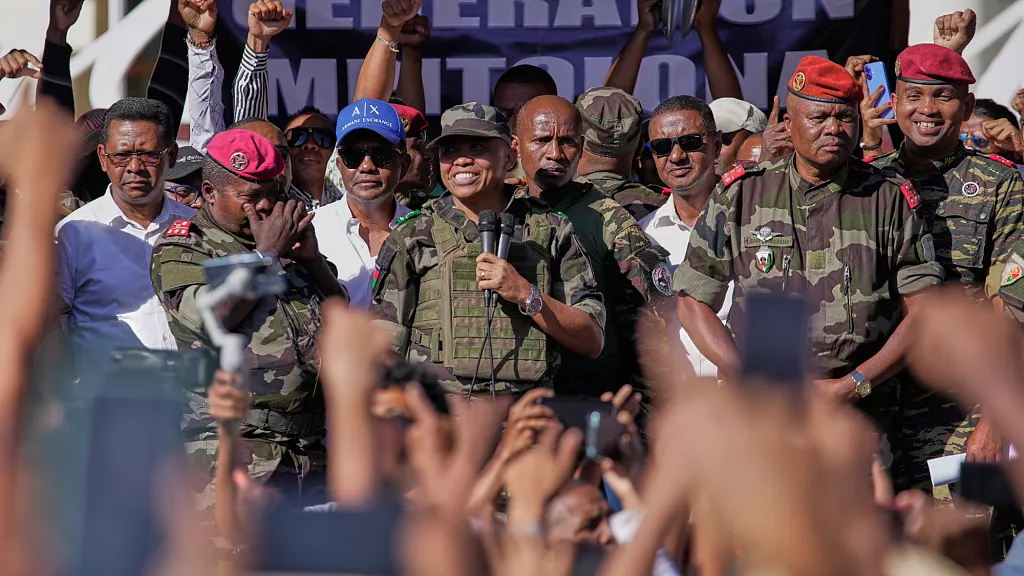Madagascar’s military has seized control of the country in a dramatic escalation of a political crisis that has gripped the island nation for weeks. President Andry Rajoelina has reportedly fled abroad citing threats to his personal safety, after facing impeachment and mass protests demanding his resignation.
In a televised address from outside the presidential palace in Antananarivo on Tuesday, Colonel Michael Randrianirina of the elite CAPSAT unit announced that the armed forces had taken over the reins of government, describing the move as a necessary step to “restore democracy and public confidence.”
“We are establishing a national reform mechanism that responds to the aspirations of the Malagasy people,” Col Randrianirina said, standing flanked by senior officers. “The existing government structures under the 2010 constitution are being dissolved with immediate effect.”
The army has suspended key state institutions, although the National Assembly will reportedly continue to function. According to Col Randrianirina, a transitional governing structure will be installed, including a joint presidential council, a caretaker government, and a judicial reform initiative led by the Supreme Constitutional Court.
The dramatic power shift follows weeks of mass demonstrations across the country, largely driven by young people — particularly those from Generation Z — voicing frustration over corruption, economic hardship, and political stagnation. Public trust in President Rajoelina’s administration had plummeted in recent months amid allegations of electoral manipulation and economic mismanagement.
Tensions escalated sharply on Saturday when troops from CAPSAT, an elite military unit previously loyal to the presidency, joined the protests in the capital. The defection was seen as a turning point in the crisis, signalling the collapse of the president’s support within the armed forces.
Shortly afterwards, Rajoelina accused his political opponents of orchestrating a coup and reportedly went into hiding. By Monday night, sources within the president’s inner circle confirmed he had fled the country, though his current whereabouts remain unknown.
The parliament’s impeachment vote, which passed with a significant majority, cited “gross misconduct” and “failure to uphold constitutional obligations” as grounds for the president’s removal. Though largely symbolic in light of the military’s intervention, the vote has added political legitimacy to the takeover in the eyes of many Malagasy citizens.
In the capital, reaction to the military’s move has been mixed but largely peaceful. Thousands of demonstrators gathered outside government buildings on Tuesday, waving flags and chanting slogans demanding a new democratic order.
“This is the beginning of a new era,” said 24-year-old protester Fanja Rakotomalala. “We have been ignored for too long. Now, the people finally have a voice.”
However, some civil society leaders and international observers have warned against celebrating too soon. “While the military claims to be acting in the people’s interest, extra-constitutional takeovers set a dangerous precedent,” said Dr Haja Rasamimanana, a political analyst at the University of Antananarivo. “The coming weeks will be critical in determining whether this leads to true reform or a new form of authoritarianism.”
International response has so far been muted, though regional bodies including the African Union and the Southern African Development Community (SADC) are expected to issue statements in the coming days.
The military has pledged to hold new elections “once conditions for a free and fair vote are in place”, though no timeline has yet been provided. Meanwhile, the transitional authority is expected to announce its first executive appointments by the end of the week.
For now, the island nation of nearly 30 million remains in a state of flux, its democratic future uncertain.
